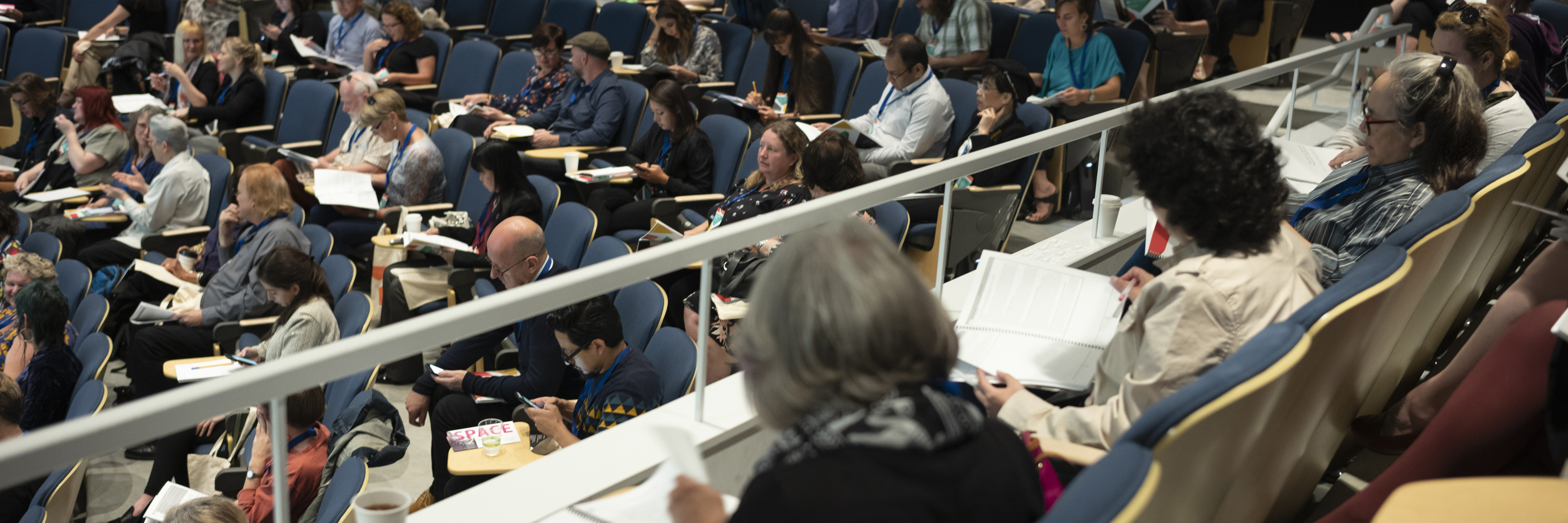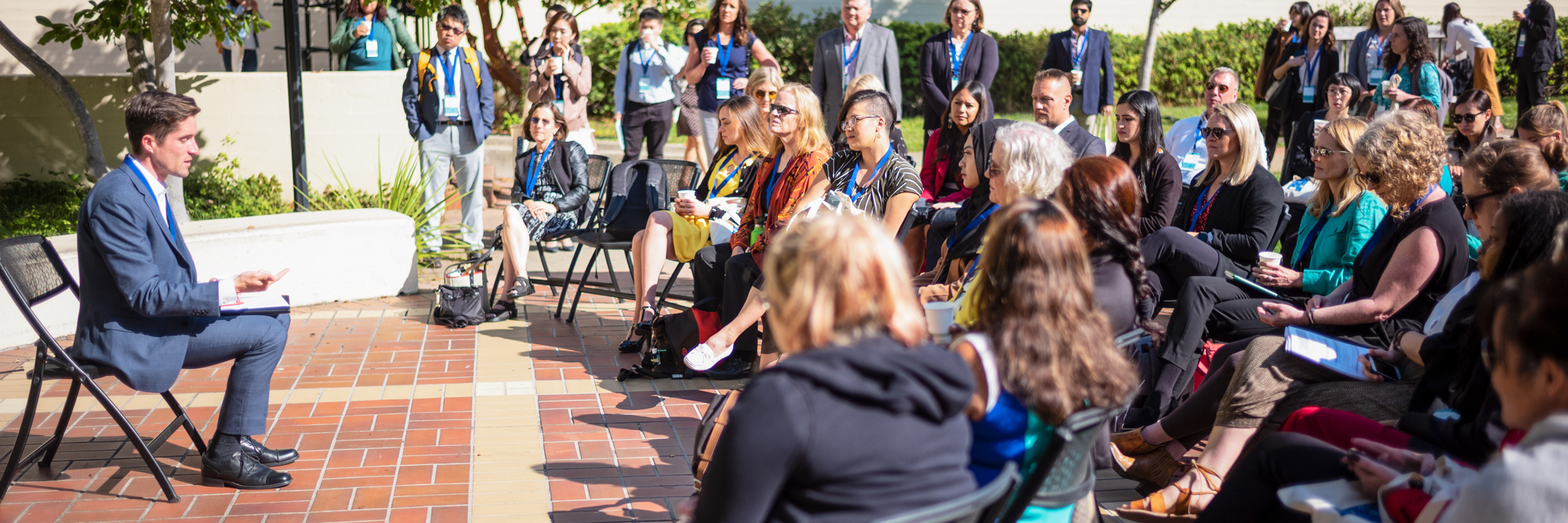Reimagining How Knowledge is Made and Shared



Traditional knowledge systems have often been divided vertically—by discipline, profession, institution, or nation. Common Ground offers an alternative: horizontal communities of dialogue that connect people and ideas across those inherited boundaries. Our members are engaged in vital questions: the sustainability of our planet, the diversity of our societies, the future of learning, the nature of interdisciplinarity, the place of the arts in everyday life, and technology’s expanding role in shaping knowledge. These questions demand collaboration, openness, and imagination—the kind of intellectual exchange that defines our networks.
Over four decades, we have developed an integrated model of scholarly activity that combines conferences, journals, book publishing, and online engagement into one continuous cycle of research and communication. Each element strengthens the others, linking people not only through shared interests but through the very process of producing and validating knowledge together. Today, this model has evolved into what we call the Knowledge Experience (KX)—a new generation of scholarly participation that integrates the best of in-person community with the reach and resilience of digital media. KX reimagines the act of scholarship as a living, collective process—human in its origins, social in its exchange, and intelligent in its adaptation.
We stand on three enduring principles: Openness and Accessibility: Knowledge should circulate freely, across all boundaries of geography, language, and status. Dialogue and Diversity: Strong ideas grow stronger through exchange—when disciplines, perspectives, and experiences meet in mutual respect. Integrity and Sustainability Our work is guided by ethical practice and by the long view: supporting rigorous scholarship while building infrastructures that endure.
Common Ground Research Networks is headquartered in the University of Illinois Research Park, a place where academic inquiry and technological innovation intersect. Our team—composed of scholars, editors, designers, and developers—collaborates globally to advance the infrastructures of scholarly life.
We are proud to be independent, but we are never alone. Our partners include universities, research institutes, public organizations, and thousands of members across more than eighty countries who contribute daily to a shared vision of what knowledge can be when it is made with people, not for them.

The Association of American

Association of Learned and Professional Society Publishers (ALPSP) is an international membership trade body that supports and represents not-for-profit organizations and institutions that publish scholarly and professional content. With over 300 members in 30 countries, membership also includes those that work with these publishers.

The Society for Scholarly Publishing (SSP), founded in 1978, is a nonprofit organization formed to promote and advance communication among all sectors of the scholarly publication community through networking, information dissemination, and facilitation of new developments in the field.

Crossref is a not-for-profit membership organization for scholarly publishing. Crossref and its members work to make content easy to find, link, cite, and assess by using online tools and services to improve research communications. Crossref's goal is to be a trusted collaborative organization with broad community connections; authoritative and innovative in support of a persistent, sustainable infrastructure for scholarly communication.

We are proud to be a signatory to the United Nations Sustainable Development Goals Publishers Compact. Launched in collaboration with the International Publishers Association, the compact “features 10 action points that publishers, publishing associations, and others can commit to undertaking in order to accelerate progress to achieve the Sustainable Development Goals (SDGs) by 2030. Signatories aspire to develop sustainable practices and act as champions of the SDGs, publishing books and journals that will help inform, develop and inspire action in that direction.”